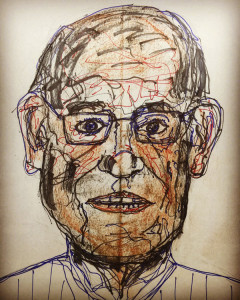In 1949, his manager, Casey Stengel, assessed him as follows: “Mr. Berra is a very strange fellow of very remarkable abilities.”[1] He was an All-Star for 15 consecutive seasons. “He was the most durable and consistently productive Yankee during the period of the team’s most relentless success.”[2] As a player, he played on 10 Yankee championship teams and as a manager, led both the Yankees and the Mets to the World Series.
In reading his obituary, however, I was struck by how cruelly sportswriters treated him. They often portrayed him as a baseball idiot savant, apelike and barely literate.[3] An example: Collier’s Magazine wrote, “With a body that only an anthropologist could love, the 185-pound Berra could pass easily as a member of the Neanderthal A.C.”
What is remarkable about Yogi Berra is that he did not let these insults affect his performance on the field. Berra outlasted the ridicule. He held himself with dignity and today he is remembered as one of the greats of baseball.
Sports and the legal profession have certain commonalities. Both involve the concept of winning and losing. In both, there is a certain element of man’s inhumanity to man. In the field of marital and family law, it sometimes occurs that lawyers make personal attacks against the opposing lawyer. This is one of the most unfortunate aspects of practicing family law. We often deal with good people on their worse behavior. When this behavior does surface, however, we can learn from Yogi Berra. As he is reputed to have said: “You can observe a lot just by watching.”
At Berra’s funeral, former Yankee manager Joe Torre mentioned Yogi’s accomplishments. Then he added: “He was so much more than that. He was so good and so honest and so real and so human.”[4]



